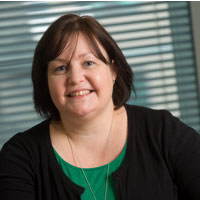This venue served as a safe and accessible space for women to gather, receive support, and participate in various activities and workshops aimed at improving their financial literacy and overall well-being.
The emergency support project funded by The DWF Foundation has made a significant difference in the lives of BME refugee women in Walsall. The project provided crucial support to 10 women facing financial hardship, offering them a safe space, essential resources, and the guidance needed to improve their circumstances. Below is a detailed description of the positive impact the project has had on the individuals and the community.
Safe and accessible venue
The community venue hired with the funds served as a safe, accessible, and welcoming space where women could gather, receive support, and participate in activities without fear or stigma. This space was crucial in fostering a sense of community and belonging among the women.
Financial literacy
Workshops and One-on-One Sessions: The project included financial literacy workshops and individual sessions that equipped the women with the knowledge and skills to manage their finances better. They learned about budgeting, saving, and accessing financial resources, which are essential skills for long-term financial independence. Improved Financial Management: all the women who participated in our session reported feeling more confident in handling their finances, making informed decisions about their spending, and seeking additional support when needed.
Mental health and well-being
Supportive Environment: The project provided a supportive environment where women could share their experiences and challenges without judgment. This significantly improved their mental health and well-being, reducing feelings of isolation, anxiety, and depression. Health and Well-Being Programs: Activities and programs focused on mental health helped the women develop coping strategies to manage stress and maintain a positive outlook despite their financial challenges.
Stronger community ties
The project fostered a sense of community among BME refugee women, creating networks of support and solidarity. These connections are invaluable, providing emotional support and practical advice to help each other through difficult times. Peer Support and Advocacy: Some women have become peer mentors and advocates, using their experiences to support and guide others in similar situations. This peer-to-peer support model ensures that the impact of the project continues to grow and reach more individuals in need.
Increased awareness and access to resources
The project has increased awareness of available resources among the women, enabling them to access additional support services and programs that they were previously unaware of. This includes access to grants, social services, and community programs that can provide further assistance.
Feedback and success stories
Participants have shared numerous success stories and positive feedback, highlighting the profound difference the project has made in their lives. For instance, one participant noted, "The support I received not only helped me financially but also gave me the confidence to seek out more opportunities and better manage my situation." Personal Progress Plans: The use of Personal Progress Plans has allowed us to track each woman’s progress, demonstrating clear improvements in their financial stability, mental health, and overall well-being.
Global
 Australia
Australia
 France
France
 Germany
Germany
 Ireland
Ireland
 Italy
Italy
 Poland
Poland
 Qatar
Qatar
 Spain
Spain
 UAE
UAE
 UK
UK

